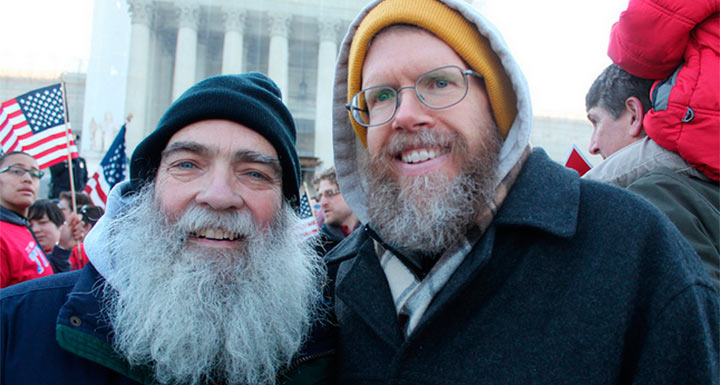
Supreme Court will not hear any same-sex marriage cases – why this is good news
On Monday (Oct. 6), the U.S. Supreme Court began its fall session, and in a stunning development announced it [would] not take up any of the same-sex marriage cases from the five states it was presented, Utah, Oklahoma, Virgina, Indiana, and Wisconsin.
Many court watchers had expected the nation’s top court would hear at least one same-sex marriage case.
But now, with [the] announcement, all stays on same sex marriage will “disappear,” to quote NBC News’ Pete Williams, albeit not overnight.
The lower court rulings will now go into effect for all same-sex marriage cases, meaning same-sex marriage is now or will shortly be legal in Utah, Oklahoma, Virgina, Indiana, and Wisconsin.
In addition, same-sex marriage will become legal in eleven more states, by virtue of them being in federal circuit court regions.
“Other states under the jurisdiction of appeals courts that struck down the bans will also be affected, meaning the number of states with gay marriage is likely to quickly jump from 19 to 30,” Reuters reports. “The other states would be North Carolina, West Virginia, South Carolina, Wyoming, Kansas and Colorado.”
The Supreme Court could take up a same-sex marriage case in the future if a Court of Appeals rules a marriage ban is constitutional, which no appeals court has ruled to date.
“Today’s [Oct.6] decision by the Supreme Court leaves in force five favorable marriage rulings reached in three federal appellate courts, ensuring the freedom to marry for millions more Americans around the country,” Evan Wolfson, president of Freedom to Marry, said in a statement. “The Court’s letting stand these victories means that gay couples will soon share in the freedom to marry in 30 states, representing 60% of the American people. But we are one country, with one Constitution, and the Court’s delay in affirming the freedom to marry nationwide prolongs the patchwork of state-to-state discrimination and the harms and indignity that the denial of marriage still inflicts on too many couples in too many places. As waves of freedom to marry litigation continue to surge, we will continue to press the urgency and make the case that America – all of America — is ready for the freedom to marry, and the Supreme Court should finish the job.”
(From the: www.The New Civil Rights Movement)


